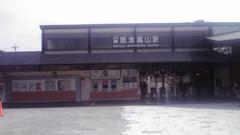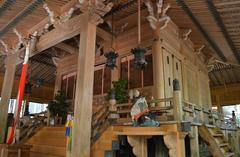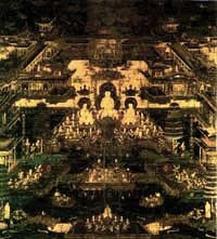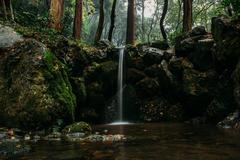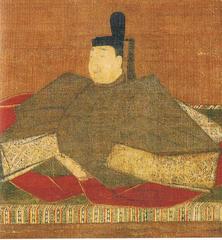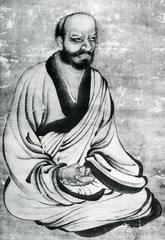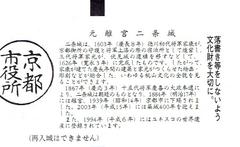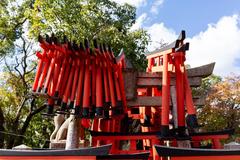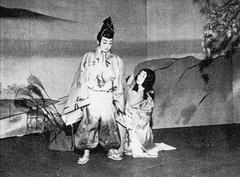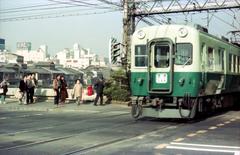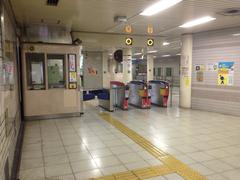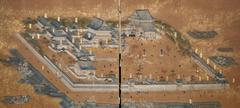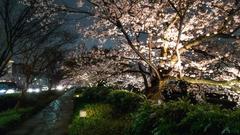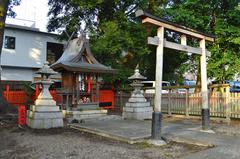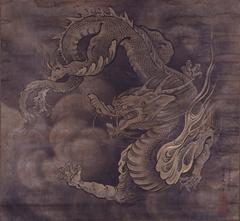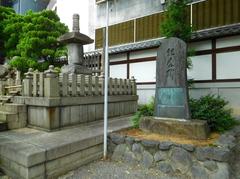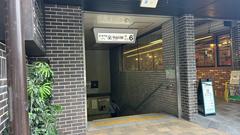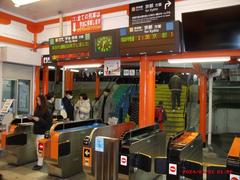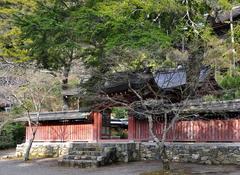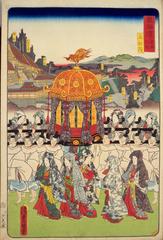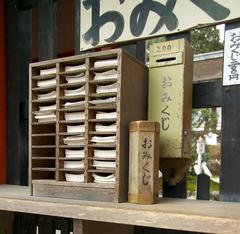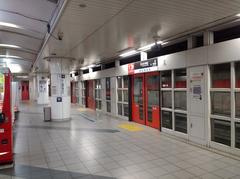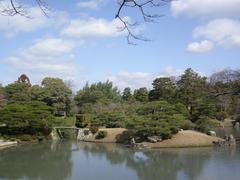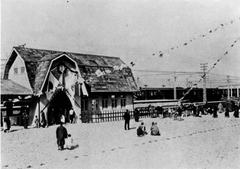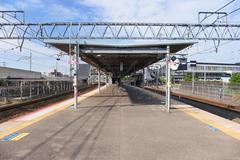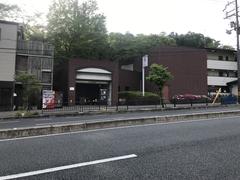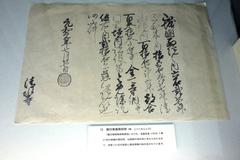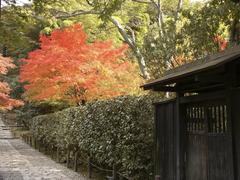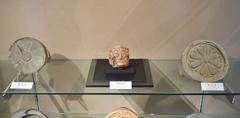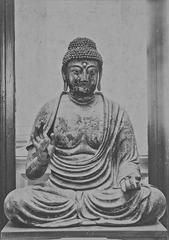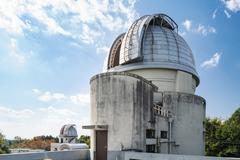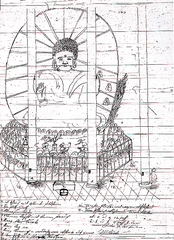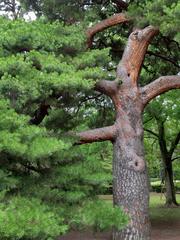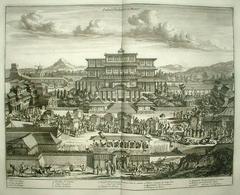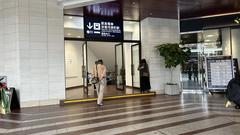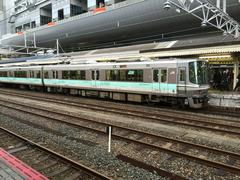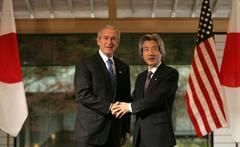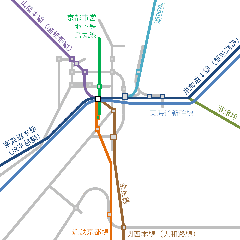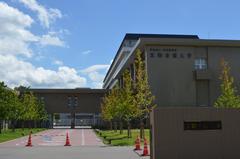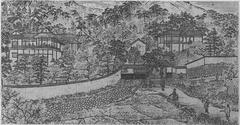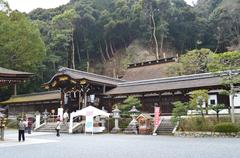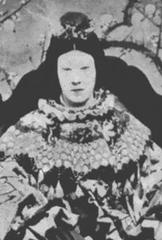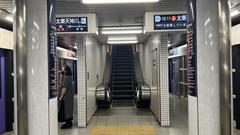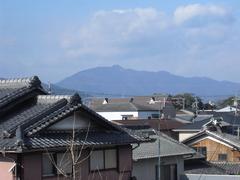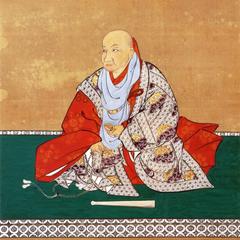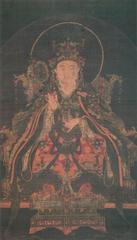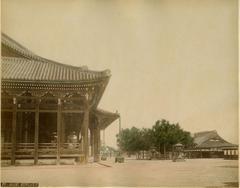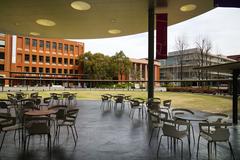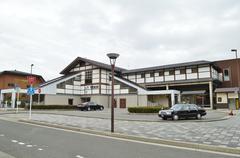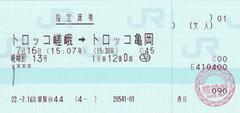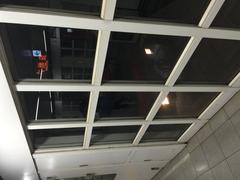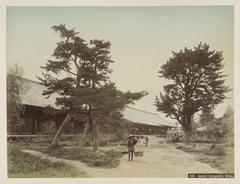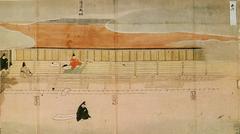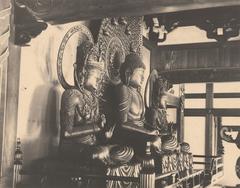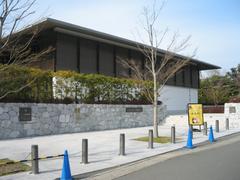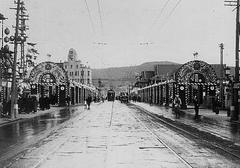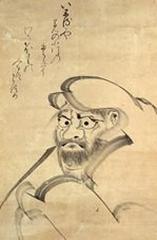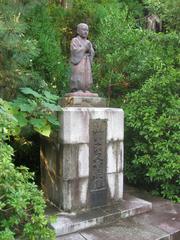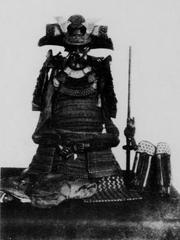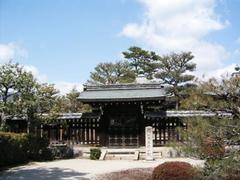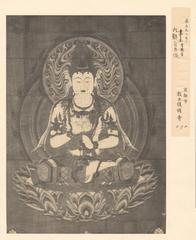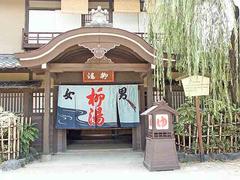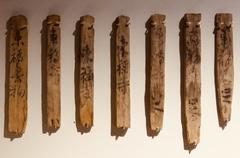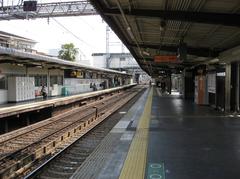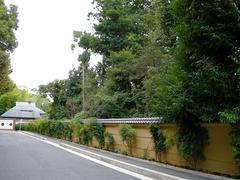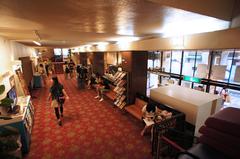Kacho College Kyoto: Visiting Hours, Tickets, and Guide to Historical Sites
Date: 14/06/2025
Introduction
Kacho College, nestled in Kyoto’s culturally rich Higashiyama district, stands as a distinguished private junior college that seamlessly blends academic excellence with a deep commitment to cultural preservation. Established in the wake of Japan’s postwar educational reforms, Kacho College has evolved from its original focus on women’s education and Buddhist values into a dynamic institution renowned for its specialized programs in early childhood education, welfare, and Japanese cultural studies. Visitors to Kacho College can expect an immersive experience, engaging with Kyoto’s vibrant traditions—from Buddhist philosophy to traditional arts and community festivals—while enjoying the serene ambiance of a campus surrounded by historic temples and gardens. This guide provides comprehensive information on the college’s history, educational mission, visitor logistics, and nearby attractions, ensuring a rewarding visit for cultural enthusiasts, prospective students, and travelers alike (Kyoto City Official PDF, Japan Policy Forum, GoWithGuide).
Contents
- Introduction
- Historical Development and Mission
- Origins and Foundation
- Evolution and Academic Expansion
- Educational Philosophy
- Commitment to Women’s Empowerment
- Kacho College in Kyoto’s Cultural Context
- Visitor Information
- Visiting Hours and Entry
- Tickets and Guided Tours
- Accessibility
- Campus Highlights
- Practical Visitor Tips
- Nearby Attractions
- Frequently Asked Questions (FAQ)
- Conclusion
- Visual and Interactive Enhancements
- Sources
Historical Development and Mission
Origins and Foundation
Kacho College (華頂短期大学, Kacho Tanki Daigaku) was established in 1950, rooted in the Buddhist-affiliated educational tradition of Kyoto. Founded by the Kacho Gakuen foundation, its early mission centered on providing practical and moral education to young women, with Buddhist values at its core (Kyoto City Official PDF).
Evolution and Academic Expansion
Initially offering programs in home economics and childcare, Kacho College gradually expanded its curriculum to include early childhood education, welfare, nutrition, and cultural studies. This diversification reflected broader social changes in Japan, with increasing opportunities for women and a growing emphasis on vocational education (Tsunagu Japan). The college is now recognized for combining practical training with Buddhist ethics and holistic personal development.
Educational Philosophy
Kacho College’s philosophy is informed by Buddhist principles such as compassion, mindfulness, and respect for all beings. The curriculum integrates ethics and self-reflection, fostering both professional competence and social responsibility. Students benefit from hands-on internships, community projects, and cultural immersion, preparing them to be effective educators and active contributors to society.
Commitment to Women’s Empowerment
Since its inception, Kacho College has played a pivotal role in advancing women’s education in Kyoto. The college has empowered generations of women to become educators, leaders, and advocates for gender equality and social change (Living Nomads).
Kacho College in Kyoto’s Cultural Context
Kacho College is situated at the intersection of tradition and innovation within Kyoto’s vibrant academic landscape. The city’s status as a “university town,” with over 40 higher education institutions and a deep-rooted cultural legacy, offers a rich environment for learning and cultural exchange (Kyoto City Official PDF). The college’s programs incorporate Kyoto’s living traditions, such as ikebana (flower arranging), tea ceremony, and calligraphy, while also preserving local customs through annual festivals and community engagement (Japan Policy Forum).
Students and visitors alike can participate in cultural workshops, attend festivals, and engage with artisans, fostering cross-cultural understanding and reinforcing Kyoto’s reputation as Japan’s cultural heart (GoWithGuide, Britannica).
Visitor Information
Visiting Hours and Entry
- Regular Hours: Kacho College is generally open to visitors Monday through Friday, 9:00 AM to 5:00 PM, during the academic calendar. Access may be limited on holidays or during examination periods.
- Open Campus Events: The college periodically hosts open campus days, cultural festivals, and special events, which are ideal opportunities for visitors to explore facilities and experience campus life (kyotokacho-u.ac.jp).
- Advance Arrangements: For guided tours or group visits, it is recommended to book in advance via the official website or by contacting the administration office.
Tickets and Guided Tours
- Entry Fees: General campus access, including open campus events and exhibitions, is typically free. Some workshops, guided tours, or special lectures may require advance registration and a nominal fee.
- Guided Tours: Scheduled during open campus events and by appointment. These tours provide insights into the college’s history, educational programs, and Buddhist ethos (style.kyotokacho-u.ac.jp).
Accessibility
- Mobility: The campus features elevators, ramps, and accessible restrooms to accommodate visitors with disabilities.
- Transportation: Located at 3-456 Rinkacho, Higashiyama Ward, Kacho College is about a 10-minute walk from Higashiyama Station (Kyoto Municipal Subway Tozai Line). City buses and taxis also serve the area. Visitor parking is limited; public transit is encouraged (kyotokacho-u.ac.jp).
Campus Highlights
- Lecture Halls & Training Facilities: Modern, well-equipped spaces for teaching and practical training in early childhood education and Japanese culture.
- Library: Focused on Japanese cultural resources, open to visitors during regular hours.
- Cafeteria & Garden: The campus cafeteria offers Japanese and Western dishes, with vegetarian options. The landscaped garden is especially beautiful in spring and autumn.
- Student Lounges: Comfortable communal areas for study and socializing.
- Cultural Events: Annual festivals, arts workshops, and public lectures, often aligned with Kyoto’s major traditional festivals (kyotokacho-u.ac.jp).
Practical Visitor Tips
- Language: While most signage is in Japanese, some English materials are available. Staff and students may assist English-speaking visitors.
- Dress Code: No strict requirements, but respectful attire is advised, especially during cultural events.
- Photography: Permitted in public areas and gardens; always ask permission before photographing people or restricted spaces.
- Etiquette: Be mindful of the learning environment and follow posted guidelines, particularly during class hours.
Nearby Attractions
Kacho College’s central location in the Higashiyama district makes it an excellent starting point for exploring Kyoto’s renowned historical and cultural sites:
- Shoren-in Temple: Known for its tranquil gardens and historic buildings.
- Chion-in Temple: The head temple of the Jodo sect, famous for its grand architecture.
- Yasaka Pagoda & Gion District: Experience Kyoto’s geisha culture and traditional streets.
- Philosopher’s Path: Picturesque walkway lined with cherry trees and connecting several temples (intrepidscout.com).
- Nishiki Market: “Kyoto’s Kitchen,” offering local cuisine and street food.
- Kiyomizu-dera, Kinkaku-ji, and Fushimi Inari Taisha: Iconic temples easily accessible by public transport (Japan Wonder Travel, Britannica).
Frequently Asked Questions (FAQ)
Q: What are the visiting hours of Kacho College?
A: Weekdays, 9:00 AM–5:00 PM. Hours may vary during holidays or events; check the official website for updates.
Q: Are there entry fees for visiting?
A: General access is free. Some workshops or guided tours may require a fee or advance booking.
Q: Can visitors attend lectures or cultural workshops?
A: Yes, during open campus events and by prior arrangement. Regular classes are not open to the public.
Q: Is the campus wheelchair accessible?
A: Yes, with ramps, elevators, and accessible facilities.
Q: How do I get to Kacho College from Kyoto Station?
A: Take a local subway or city bus to Higashiyama Station, then walk approximately 10 minutes.
Q: What are the best times to visit for cultural events?
A: Major events align with Kyoto’s festival calendar, especially in spring (cherry blossoms) and summer (Gion Matsuri).
Conclusion
Kacho College is more than an academic institution; it is a living testament to Kyoto’s dedication to preserving its rich cultural heritage while embracing educational innovation. Whether you are interested in its historical significance, traditional arts, or educational programs, a visit to Kacho College offers a unique window into Japanese society and culture. With its prime location near iconic temples and historical districts, visitors can easily integrate their campus experience with the broader wonders of Kyoto.
Plan your visit by consulting the official website for the latest event schedules, visitor guidelines, and tour options. Enhance your journey with the Audiala app for guided tours, live updates, and exclusive content about Kyoto’s educational and cultural gems.
Visual and Interactive Enhancements
- Include high-quality photographs of campus gardens, buildings, and nearby temples, with descriptive alt text such as “Kacho College campus garden in spring, Kyoto.”
- Embed interactive maps highlighting Kacho College and recommended walking routes to nearby attractions.
- Feature event images and student exhibitions to showcase campus life and cultural activities.
Sources
- Kyoto City Official PDF
- Japan Policy Forum
- Kacho College Official Website
- Britannica
- Japan Wonder Travel
- GoWithGuide
- Magical Trip

